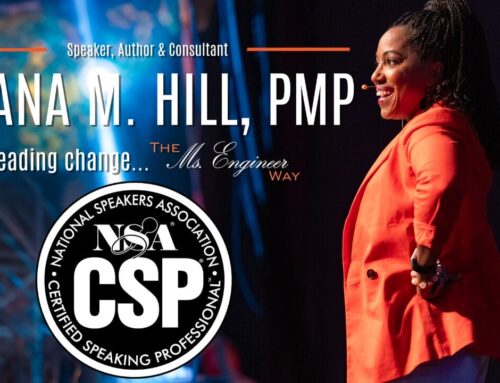Two recent events have served to remind me that our catalyst – our ‘why’ – can help us to stay the course even when all around us is noise, chaos and uncertainty.
I was saddened to hear the news of Colin Powell’s passing. Gen. Powell was a pioneer: the first Black national security advisor in U.S. history, the first Black chairman of the joint chiefs of staff and also the first Black man to become secretary of state. I reflected on the time I was lucky enough to hear him speak on servant leadership at a Salesforce conference in 2006. I heard my calling in that keynote address, and it was a catalyst for me re-committing to forging my own path with the founding of 2Hill Consulting Services.
I also recently completed my orientation for the Goldman Sachs 10k Small Business Program. As part of the process I reflected deeply on the vision for my consulting practice and my mission: “To maximize the potential of people to succeed (even in uncertainty)”. That mission has never felt more relevant as leaders and organizations are facing constant uncertainty – in the workforce, the markets, personal circumstances and many things we used to take for granted.
We can create goals, devise plans and set expectations, but we have to be ready to respond to change and uncertainty, to deviate and update as required. As someone who has many years of experience in project management and change leadership, this has long been my approach. That doesn’t mean it’s always easy. This is where our purpose steps up: keeping us focused when fear and worry are vying for our attention!
Progress is the point
A well-thought-out plan accounts for uncertainty (risks) and identifies how you will handle deviations from the plan. It’s your GPS – assessing what’s up the road, tweaking the route, getting you where you need to be.
Your plan will change, your life will change, and your motivations may change. But if you measure your progress along the way and align it to your purpose, you will be much more likely to accomplish your goals. When circumstances change, go back to your plan and make adjustments based on the new information.
We have to be willing to take risks, evaluate outcomes, and make quick adjustments. The most astute planners realize that they can’t account for every possible scenario, so the process has to include a few “what if” scenarios.
There will always be things in life that we can’t control, and true peace comes when we accept that truth. Successful people have faith. Regardless of spiritual practice, faith is a belief that your future will be better than your present. Otherwise what are you working toward? Believe. Succeed. Have faith.






